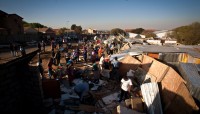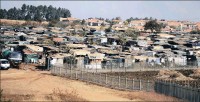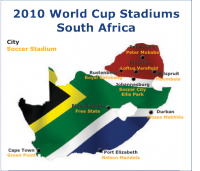Just over one million housing subsidy beneficiaries in South Africa have not received the title deeds to their properties, and the situation is worsening. As a result, poor households cannot fully benefit from the ownership of a property and use it properly as an asset and to improve their financial circumstances. A recent study by Urban LandMark reveals that the registration of title to subsidy properties in favour of beneficiaries is not happening in approximately one third of cases. The study estimates that just over one third (35%) of all houses delivered through the housing subsidy scheme have not been provided with a title deed.
Latest news
- France begins eviction of 650 migrants from Calais camps
- Anti-eviction group creates crowdsourcing map for stories of displacement
- More foreclosures, more middle-aged suicides, study finds
- When it comes to hosting the Olympics, more cities are saying, ‘Hold that thought.’
- European leaders urged to end plight of 600,000 stateless people
Latest from the collection
- Raquel Rolnik’s mandate ends. Leilani Farha is the new rapporteur. – Newsletter #47
- Roots and Branches
- New Materials on Security of Tenure in Several Languages – Newsletter #46
- Guide: Guiding principles on security of tenure for the urban poor
- Address acute housing crisis – Special rapporteur on adequate housing
Learn more


